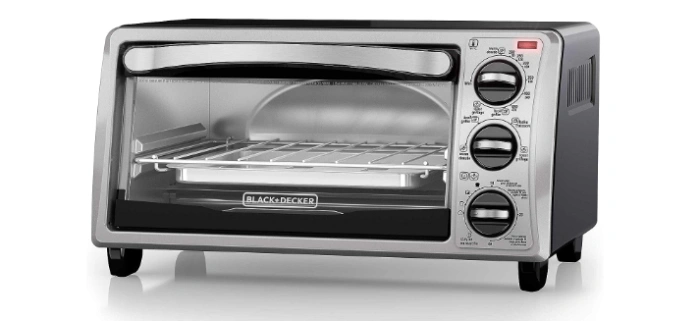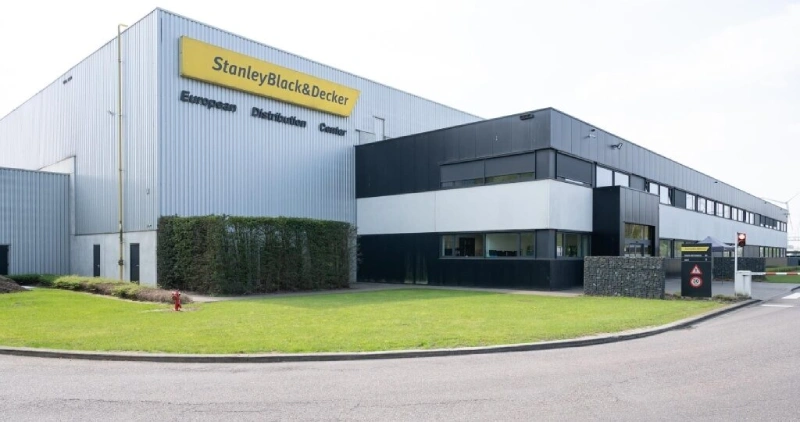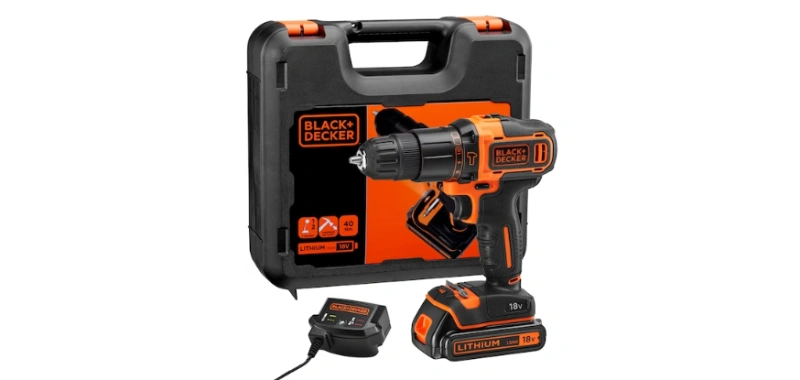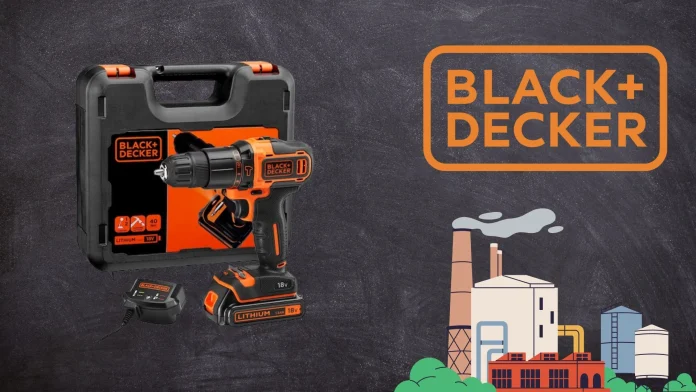Black+Decker, once known as Black and Decker, is a prominent American brand specializing in tools, accessories, and home appliances. Established in 1910, it has secured its position as a top tool producer in the U.S. market. Now, it operates under the umbrella of Stanley Black & Decker, a larger conglomerate that manages a myriad of other companies and brands.
The range of Black+Decker’s offerings is extensive, spanning from basic drills to home refrigerators. Despite this diversity, the past two decades have seen a noticeable shift in consumer perceptions regarding product quality. Back in the 1980s, Black and Decker tools were the go-to choice for professional builders, renowned for their durability.

However, recent years have witnessed some of their products failing after minimal use. While it might be tempting to attribute this decline in quality to the company outsourcing its manufacturing processes, thereby losing direct oversight of production standards, the reality of how Black+Decker’s products are made and who actually manufactures them is a bit more complex. Let’s delve into the specifics of Black+Decker’s manufacturing practices and identify their primary manufacturing partner.
Who is a manufacturer of Black and Decker products
Initially, Black+Decker’s core focus was on creating tools. As time went on, they broadened their scope to encompass a variety of home appliances, including microwaves, vacuum cleaners, among others, with the ambition of making Black+Decker the go-to brand for all household needs. When it comes to standard or electric tools, Black+Decker continues to produce these in-house at their own facilities, boasting considerable manufacturing operations both within the USA and internationally. It’s crucial to recognize that these manufacturing sites are, in a legal sense, under the ownership of Stanley Black & Decker, given that Black+Decker operates as a subsidiary of this larger parent entity.

The production of home appliances paints a different picture. While Black+Decker does manufacture some of these items directly, a significant portion of their appliance lineup is produced through licensing agreements. In such arrangements, Black+Decker authorizes third-party companies to produce and market products under the Black+Decker brand name. This setup means that Black+Decker doesn’t have direct oversight over the production and development of these licensed products, which can lead to variations in quality and design. There are numerous licensing agreements in place with various companies, each with its own terms and conditions. Here, we’ll take a closer look at some of the key licensing partnerships Black+Decker has established:
- JEM Brands: Known for their expertise in lighting, JEM Brands partnered with Black+Decker in January 2024 to create portable lighting solutions, catering to outdoor activities like camping and indoor uses such as workshops.
- Indkal Technologies: This Indian company began its partnership with Black+Decker in 2023, focusing on manufacturing large appliances specifically for the Indian market under the Black+Decker brand.
- Stovekraft: Since 2017, Stovekraft, another Indian entity, has been involved in producing a variety of Black+Decker products for the Indian market. Their specialization lies in cooking appliances and extends to heaters.
- Bradshaw International, Inc.: Based in California, USA, Bradshaw International has a longstanding relationship with Black+Decker dating back to 2016. They produce a wide array of kitchenware for Black+Decker, including but not limited to pots, pans, peelers, mixers, cutlery, barbecue tools, and bakeware.
- W Appliance: Focused on kitchen appliances, particularly refrigeration, W Appliance, an American company, has been manufacturing refrigerators, freezers, and wine coolers for Black+Decker since 2016. Their products range from built-in units to free-standing models.
- Midea Group: A prominent Chinese kitchen appliance manufacturer, Midea Group, has been producing a range of small appliances for Black+Decker, including vacuum cleaners and microwaves, since 2015.
- Spectrum Brands: While Spectrum Brands, an American company, produces some items under the Black+Decker brand, this arrangement isn’t due to a licensing agreement. Instead, Spectrum Brands owns certain former Black+Decker assets, particularly in the hardware, plumbing, and locks categories, and thus manufactures products under the brand following their acquisition of these rights.

Black+Decker adopts a strategic approach in their product manufacturing, wherein the production of kitchen appliances is largely outsourced through licensing agreements, while the manufacturing of tools continues to be an in-house operation. This methodology is practical for Black+Decker, allowing the company to focus on its core competencies in tool-making while leveraging the expertise of specialized manufacturers for kitchen and home appliances. It’s a smart move that helps Black+Decker steer clear of the complexities involved in producing technologies that fall outside their primary domain of expertise.
Where Black and Decker’s products are made
When it comes to the manufacturing locations of Black+Decker’s original products, it’s a blend of domestic and international sites, predominantly in the USA and China. Black+Decker operates numerous factories dedicated to the development and production of their tools and equipment, with a significant number of these facilities situated within the United States.

Until the year 2020, China was a major hub for Black+Decker’s production, accounting for nearly half of its manufacturing output. However, the closure of their substantial Shenzhen plant in 2020 marked the beginning of a shift away from Chinese production. Presently, the United States hosts the bulk of Black+Decker’s manufacturing capabilities. Besides the USA, Black+Decker’s products are manufactured in several other countries, including:
- Mexico
- Brazil
- United Kingdom
It’s also important to consider the manufacturing footprint of Stanley Black & Decker, the parent entity of Black+Decker. This larger conglomerate maintains manufacturing facilities across Europe, notably in Germany, Italy, and Poland. These European plants contribute to the production of some local market products, although Black+Decker does not directly operate them. The specifics of the products manufactured in these European facilities are not clearly delineated.
Across the globe, Black+Decker employs a workforce exceeding 27,000 individuals.
Are Black and Decker tools cheaply made?
I want to circle back to a point I raised at the start of this piece. In my research, I encountered quite a few user complaints about the quality of modern Black+Decker tools. Does this imply they’re cheaply manufactured? It seems so, to a degree.

Now, Black+Decker has carved out a niche for itself as a brand that’s affordable and within reach for just about everyone. In line with this, the company is keen on trimming down production costs to keep the prices of its products on the lower end. This strategy aligns with their vision of potentially having every household appliance bear the Black+Decker name, all while keeping them economically viable for the consumer.
But then, what happens to the demand for high-quality professional tools? Although Black+Decker once catered to this segment with their own products, they’ve since shifted gears. Nowadays, they own a handful of other brands, such as DeWalt and Craftsman, under which they roll out pricier, higher-end tools. These brands operate autonomously and are specifically targeted at the premium market segment, catering to professionals who require top-tier tools for their work.
What other brands own Stanley Black & Decker
Let’s briefly list the brands belonging to Stanley Black & Decker:
- Stanley
- Bostitch
- Lenox
- Dewalt
- Craftsman
- Porter Cable
- Aero Scout
- Facom
- Mac Tools
- Proto
- Inner Space
- Irwin
- Vidmar
- Piranha
- Sonitrol




